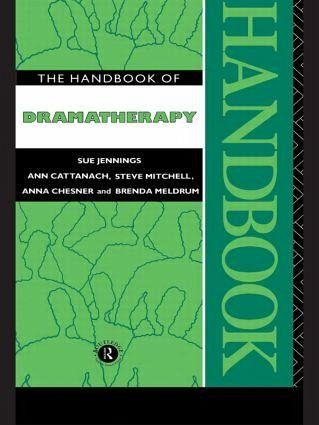
The Handbook of Dramatherapy
Versandkostenfrei!
Versandfertig in 6-10 Tagen
39,99 €
inkl. MwSt.
Weitere Ausgaben:

PAYBACK Punkte
20 °P sammeln!
Dramatherapy is being increasingly practised in a range of therapeutic settings and is of growing interest to theatre practitioners and teachers. The Handbook of Dramatherapy brings together five authors who have considerable experience of clinical, artistic and educational work to provide an easy-to-read introduction to the major models of dramatherapy. The authors explain the differences between dramatherapy and psychodrama, discuss its relationship with theatre art, look at assessment and evaluation techniques, and argue the need for more appropriate methods of research for this increasingl...
Dramatherapy is being increasingly practised in a range of therapeutic settings and is of growing interest to theatre practitioners and teachers. The Handbook of Dramatherapy brings together five authors who have considerable experience of clinical, artistic and educational work to provide an easy-to-read introduction to the major models of dramatherapy. The authors explain the differences between dramatherapy and psychodrama, discuss its relationship with theatre art, look at assessment and evaluation techniques, and argue the need for more appropriate methods of research for this increasingly popular form of therapeutic treatment.
The Handbook of Dramatherapy provides a comprehensive basis for theory and practice and will be an invaluable resource for all students of dramatherapy and theatre.
The Handbook of Dramatherapy provides a comprehensive basis for theory and practice and will be an invaluable resource for all students of dramatherapy and theatre.














